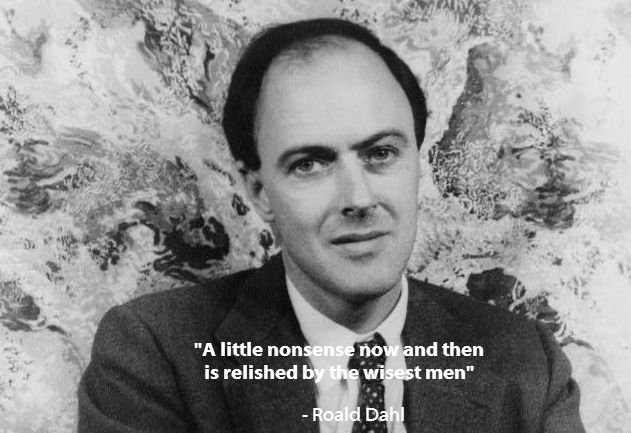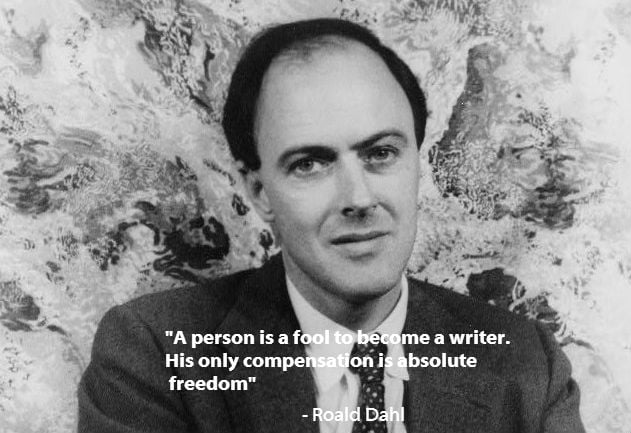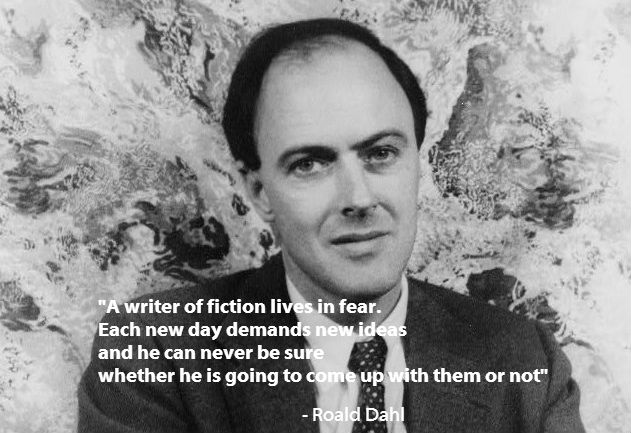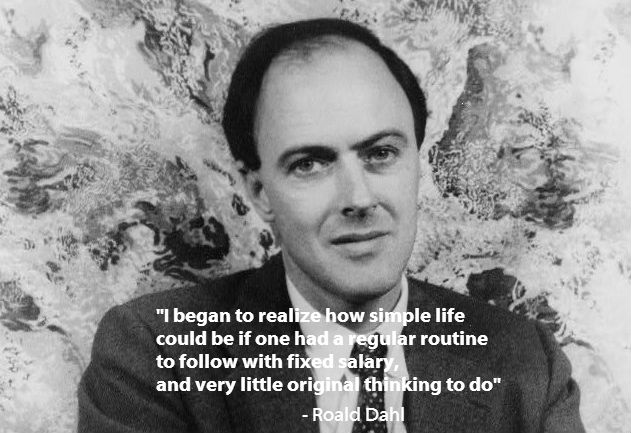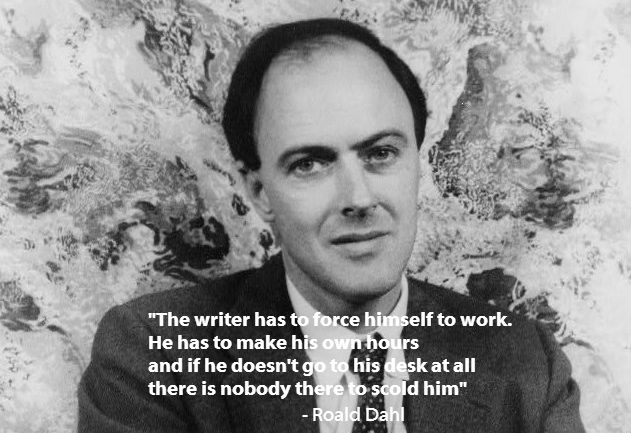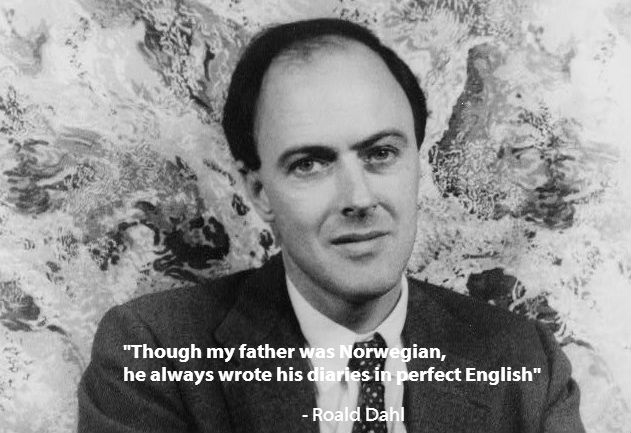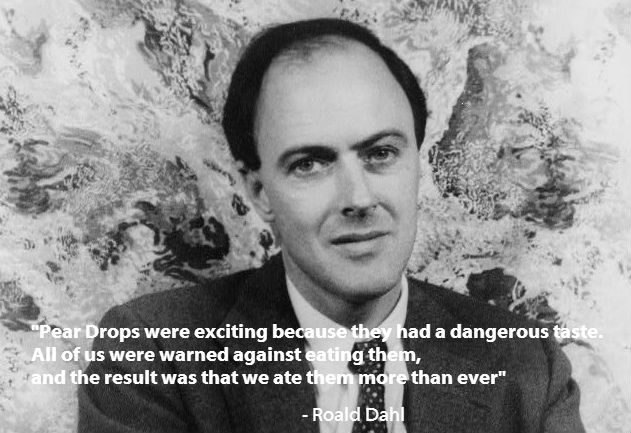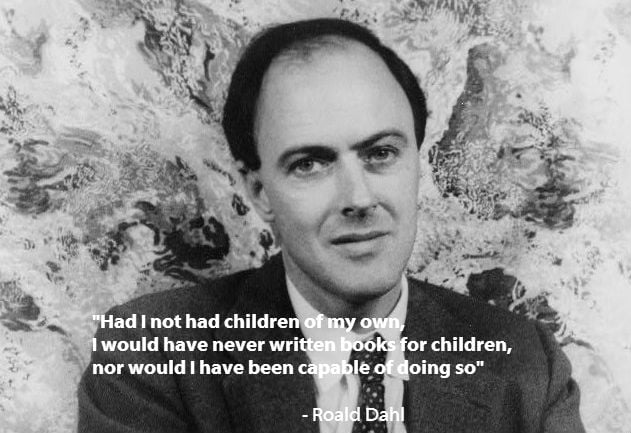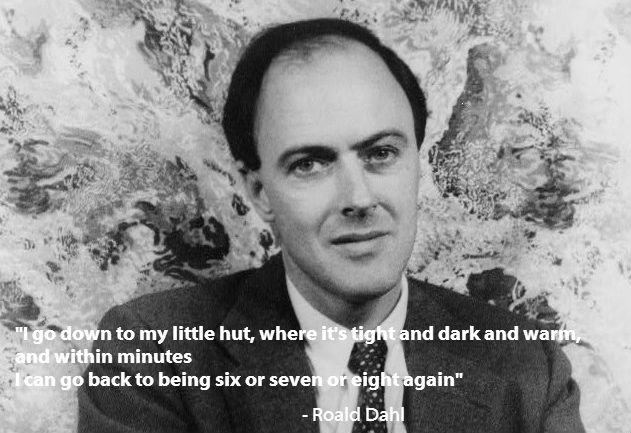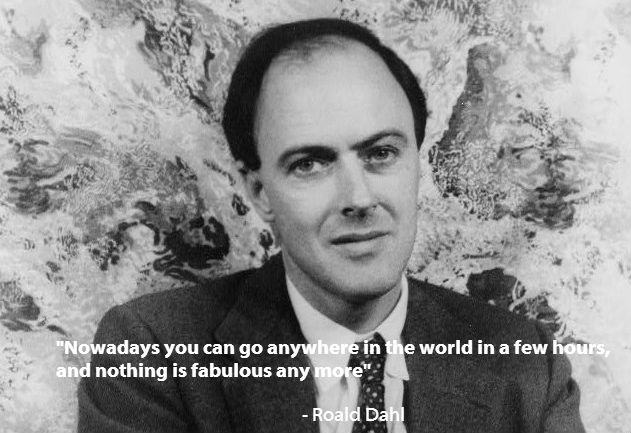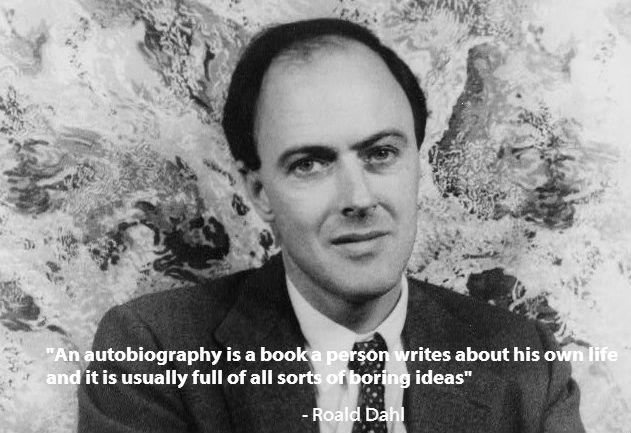1. Have fun
Working hard is one thing, but it’s important to take a break and have fun. Intelligent, creative and productive people know that making time for an indulgence, a side-passion or even a little nonsense refuels our batteries and makes it easier to get back to work. Plus, if you’re not having fun then what’s the point?
2. Draw on past experiences
During World War II Dahl became a decorated fighter pilot and intelligence officer for the Royal Air Force. Although he could have clearly pursued and succeeded at other careers after the war, he had a passion for telling stories. His success as a writer shows that our past interests and careers can inform our work.
3. It’s natural to worry where your ideas come from
Dahl wrote dozens of short stories, books and screenplays during his life including the BFG, Matilda and Charlie and the Chocolate Factory. Even he worried about coming up with new ideas. If you’re involved in creative work, accept these fears as part of the process and then move past them. Just keep turning up and putting the work in.
4. Routine is important
Dahl’s observation about having “very little original thinking to do” refers to less creative careers. If you are creative people and stuck in a boring job, you can still thrive. Just save your original thinking for the blank page or for a creative side-project.
5. Writing takes discipline
If you want to succeed as a writer, you will have to become comfortable working in your own company and keeping your own hours. Unlike other professions, nobody is going to demand that you turn up every day and put the work in. Although this brings a certain level of freedom, it also means that you have to become even more disciplined and responsible about your craft.
6. Keeping a journal is a useful practice
Dahl wrote two autobiographies: Boy: Tales of Childhood and Going Solo. Both books have echoes of a journal about them. If you want to become a writer, keeping a journal is a useful practice that can inform your work. You can use your journal to develop ideas for future writing projects, to document the progress of your work and to mark your accomplishments and setbacks.
7. Creative work is hard work
Creative work is exciting. It can take you to another place and provide a refuge from the day-to-day world. It’s also difficult and demanding work that can leave you emotionally and physically drained at the end of the process. Tread carefully.
8. Draw on sensual experience
If you want to become a writer, it’s important to observe and write about day-to-day experiences that others take for granted. You should record how things look, taste, touch, smell and sound, and then use these sense impressions to paint a colorful picture for your reader. This will bring your work to life.
9. Write with your ideal audience in mind
Dahl is on record as saying that he wrote many of his books for his children and later for his grandchildren. He considered the people closest to him when he wrote and he created a world for them on the page. If you’re a writer, you should consider who your ideal reader is, what they want, what they like and what they dislike.
10. Have a place to work
Dahl wrote in a hut at the back of his house for much of his life. Just as office workers go the same place every day, writers and creative professionals should also have a room to work in, where nothing else happens except their work. This makes it easier to create and reduces the chances of procrastination
11. Take advantage of the shrinking world
Dahl recognized that the world had become vastly smaller during his lifetime, and he lived much of his life in a time pre-internet and pre-mobile phones. Although this sense of fabulous may be lost, if you get into the habit of sharing your work, the idea of other people reading it doesn’t have to feel exotic. Today, you can create something, publish and share it with the world (on sites like Lifehack).
12. Be modest
Lots of famous writers enjoy getting into fights with other writers or talking about how important or grand their work is. Dahl wasn’t afraid to put his profession in perspective and, even though his two autobiographies are anything but boring, he could hardly be accused of being self-aggrandizing or self-promotional. He shows that writers and creative professionals should be more concerned with seeking out truth than they should be about explaining the importance of their work. What are your favorite Roald Dahl books? Has he taught you anything about productivity, creativity or writing? Please let me know in the comments section below. Featured photo credit: Cory Doctorow via creativecommons.org
